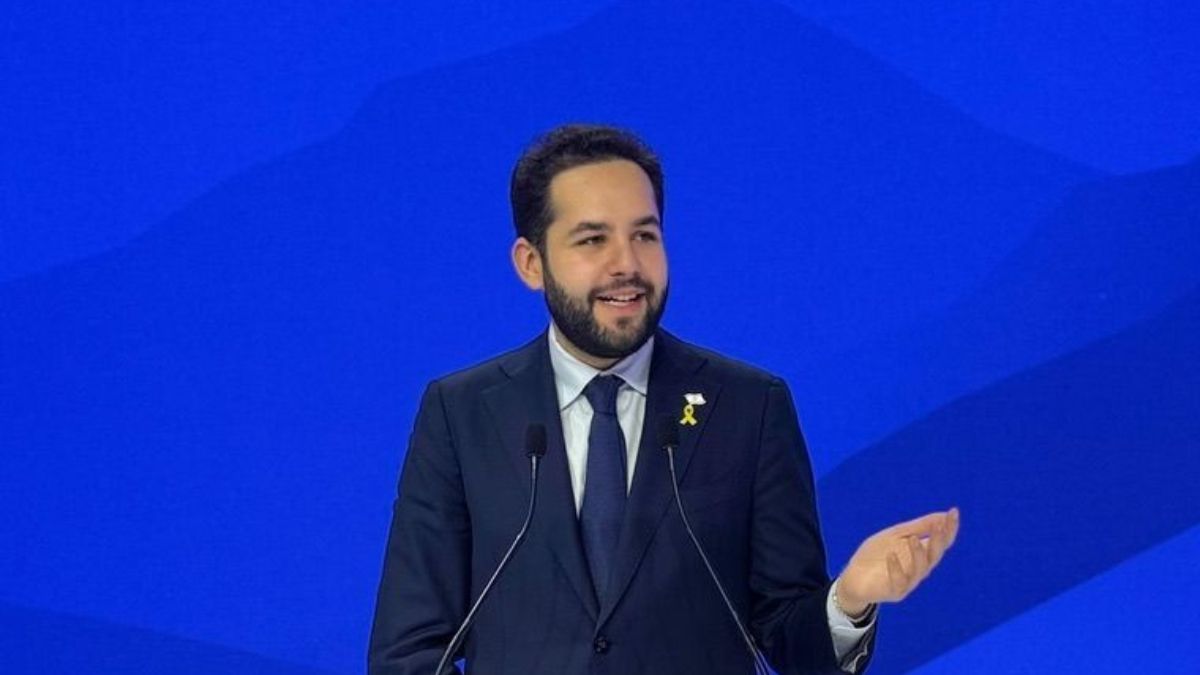There, they nucleate referents, businessmen and Argentine specialists in the sector to analyze the international and local board and generate investment opportunities. “There is strong interest in real assets: raw materials, real estate and infrastructure. There are hotels projects that are raising capital very easily less than equity rates than before, ”explains Penchas.
Next, the full interview with the investor, moving the international gaze on the macroeconomic situation of the country and the importance of AI in the financial industry.
Journalist.: What is the look of foreign investors on Argentina today?
Lucas Penchas. I would say it changed a lot in the last year. Today there is a lot of interest in Argentina within the universe of emerging markets. Before Milei, Argentina was almost untouchable: it had a bad reputation. But from the change of government, at least from the financial view, there is more confidence.
It is no longer only interest, there are concrete investments in the product of the rigi regime: lithium in Salta, in the automotive industry. Everything was slow and in recent months he accelerated. For example, an inverter from the Middle East with whom I spoke wanted to invest in tangible assets, especially raw materials. While his bottom deliberated, another background was faster and already put the capital. That demonstrates the level of interest.
Q.: What forecast they support about the political continuity of this government?
LP: Before, when thinking about investing in Argentina, the big doubt was: “And then what?” Today it is assumed that Milei wins in 2025 and in 2027. That is reflected in project value, which already discounted less uncertainty. What also influences is that there is no, from the outside, a strong opposition candidate with support throughout the country. That perception of continuity is key.
Q.: What are the warnings that investors stand out?
LP: An important is the lack of accumulation of reservations. The numbers show that they are not accumulating to the necessary rhythm. But it is believed that after the elections there will be changes in that regard. The investments that are in progress would have a tangible impact in one or two years, maybe three. That would allow to accumulate reservations and, at the same time, show management results before the next election.
Q.: After this year’s elections, is regular access to the international credit market expected?
LP.: It depends, but if everything goes as expected, access should be easier. Argentina was able to eliminate a fiscal deficit of more than 4% of GDP in a single year, something very unusual without generating a political crisis. This adjustment helped reduce inflation, lower country risk and stabilize macroeconomic expectations, which are key conditions to recover access to external credit.
In addition, the IMF recently approved a new program for 20,000 million dollars, which shows that there is multilateral support. And the Secretary of the United States visited Buenos Aires and expressed explicit support, something that is not usual and has political weight. If after the October elections some structural reforms are consolidated, the scenario to reopen credit markets should improve a lot.
Q.: What financial assets are the most attractive to US investors?
LP: There is strong interest in real assets: raw materials, real estate and infrastructure. There are hotels projects that are raising capital very easily less Equity rates than before. The infrastructure is attractive because it still did not reach its maximum value. That, combined with a potential improvement in legal certainty, attracts capital.
Q.: What is the “Argentines in Finance” event of the one that is part in New York?
LP: Basically, here in the United States, in New York, there are associations of lawyers, doctors, and now also one of Argentine engineers. We, that we are many Argentines in the financial sector, noticed that there was nothing to gather us. For example, in JP Morgan, in the LATAM group, I think today more than half are Argentines. I was before at Goldman Sachs, where there were also many compatriots.
Thus, the idea of the event emerged last year as a way to build a network. I talked to the previous consul, Pablo Piñero Aramburu, and we organized the first edition of the event. It was a success: we expected between 40 and 50 people and 140 came after that, many meetings and networking were generated.
From the IMF spring meetings in April, we receive many mails asking us to present people. Family offices, institutional investors and multilateral organizations participated in the event last year. Some introductions resulted in tangible investments: there was a purchase of an Argentine company for a European fund, associations with US investors and direct investment cases.
Q.: What relationship note between young people and the financial world? Are you changing?
LP: Yes, very much. In Argentina, especially, the “retail trading” grew: young people who do day trading, but it is risky. Statistics show that Day Trading is not viable in the long term, especially for retail investors.
But, beyond that, it is good that there is interest. Programs for young professionals in local and international banks are growing. Here in the US, too. I started at Goldman Sachs, and there are more and more young people wanting to enter investment benches or financial consultancies.
The industry is changing. It is still dominated by men of more than 60, but begins to open. I know an Argentine trader that is the only one in its area of emerging markets. Eternary diversity adds a lot, especially in new issues such as artificial intelligence.
Q.: What opportunities does artificial intelligence bring to the financial sector?
LP: AI has been using a while ago, but now it exploded with the generative AI, such as chatgpt. That revolutionized the interaction with the user: banks are implementing virtual assistants, improve experience and reduce fraud.
For example, Mastercard uses AI to minimize verification steps in payments and lower the rate of false positives. It is also used to summarize large volumes of data and generate reports in record time.
Another opportunity is infrastructure investment for AI. In that sense, Argentina has ideal conditions to house data centers: good connection, favorable climate and competitive costs. It would be interesting to see the country to become a regional IA processing pole.
Q.: Can AI become a financial advisor? Is it reliable over human experience?
LP: Not yet, Guardrails needs. I give you an example: in Canada, an airline chatbot invented a non -existent refund policy and lost a trial, because the chat “hallucinated.”
In finance, the margin of error is very small to leave decisions to a model without supervision. It is true that it serves as a support tool, but AI cannot be used as an autonomous advisor. Save time, especially in Research, but you always have to validate information manually. There were already cases of “hallucinations” in financial companies that generated problems.
Source: Ambito




